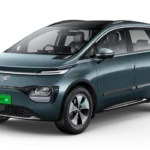The automobile industry is undergoing a significant transformation, with electric vehicles (EVs) taking center stage. In India and around the world, automakers are racing to innovate and capture market share in this rapidly evolving landscape. From new EV launches to export milestones and innovation challenges, the automotive sector is buzzing with developments. In this blog, we explore the latest trends shaping the future of automobiles in India and globally.
Electric Vehicle Market Growth and New Launches in India
India’s EV market is witnessing unprecedented growth, driven by new launches and strategic expansions by both local and global automakers.
- MG Windsor Pro: JSW MG Motor India recently launched the MG Windsor Pro, an upgraded electric vehicle featuring a larger battery, extended range, and advanced technology. Aimed at the premium EV segment, this model is now open for bookings.
- BMW’s Electric Push: BMW India is set to accelerate its EV journey with the launch of the electric SUV iX, MINI luxury hatchback, and BMW i4. The company reported a 7% sales increase in Q1 2025, fueled by demand for sports activity vehicles and EVs.
- Tesla’s Imminent Entry: Tesla is gearing up for its long-awaited entry into India, refunding early Model 3 bookings from 2016 and preparing to introduce newer models to the world’s third-largest automobile market.
- VinFast’s India Plant: Tesla rival VinFast plans to open a manufacturing plant in India by June 2025, signaling its intent to compete in the burgeoning EV market.
- Stellantis’ Leapmotor Brand: Stellantis has announced the introduction of its Leapmotor EV brand to India, with more details expected soon.
These developments highlight India’s growing importance in the global EV landscape, as automakers invest heavily in local production and innovation.
Other Automaker Developments in India
Beyond EVs, several automakers are making strategic moves to strengthen their presence in India:
- Ford’s Chennai Plant: Ford is restarting preparatory work at its Chennai plant, with operations expected to commence in the second half of 2025. This move will boost local manufacturing and job creation.
- Renault’s Hybrid Plans: Renault is considering strong hybrid versions of its Duster and Bigster models for India, focusing on fuel efficiency and performance while ruling out mild hybrids.
- Hyundai’s Milestone: Hyundai Motor India celebrated its 29th Foundation Day, reinforcing its position as a trusted automotive brand in the country.
- Mahindra & Mahindra’s Dominance: Mahindra & Mahindra is expected to retain its position as India’s second-largest passenger vehicle manufacturer in April 2025, supported by initiatives like last-mile mobility collaborations.
These efforts underscore the dynamic nature of India’s automotive sector, with companies diversifying their portfolios to meet evolving consumer demands.
Export Trends: India’s Growing Manufacturing Prowess
India’s automobile exports are hitting new highs, reflecting the country’s strengthening position as a global manufacturing hub.
- Six made-in-India car models, including Honda’s City and Elevate, Hyundai’s Verna, Nissan’s Sunny and Magnite, and Jeep’s Meridian, are now exported in greater numbers than sold domestically. This trend highlights strong global demand for Indian-made vehicles, even as the domestic market remains lukewarm.
The rise in exports demonstrates India’s ability to produce high-quality vehicles that meet international standards, positioning the country as a key player in the global automotive supply chain.
Innovation Challenges in India’s Automotive Sector
Despite progress, India’s automotive industry faces significant hurdles in innovation, as highlighted by a recent NITI Aayog report.
- The report points to low R&D investment and inadequate infrastructure as key barriers to innovation. This limits India’s competitiveness in emerging technologies like EVs and autonomous driving, with minimal collaboration between industry, academia, and research institutions.
To stay ahead in the global race for automotive innovation, India must address these gaps by fostering a stronger ecosystem for research and development.
Free Trade Agreement Benefits for Indian Automakers
India’s free trade agreement with the UK is creating new opportunities for the automotive sector.
- Imports from the UK are becoming more affordable for Indian consumers, while local manufacturers like Mahindra and TVS stand to benefit from enhanced export opportunities. This agreement is expected to boost trade and collaboration between the two countries, further integrating India into the global automotive market.
Global Automobile Trends: Electric and Hybrid Advancements
The global automotive landscape is also witnessing rapid advancements, particularly in the EV and hybrid segments.
- China’s BYD Supercharging Platform: BYD unveiled a supercharging platform in China that is twice as fast as Tesla’s, intensifying competition in the world’s largest EV market. This innovation could challenge Tesla’s global dominance, especially as it navigates hurdles in markets like India.
- Exponent Energy’s Ultra-Fast Charging: India-based Exponent Energy is set to launch a 1.5MW ultra-fast charging system for EVs, positioning it as a global competitor to BYD and other EV infrastructure providers.
- Maruti Suzuki’s Flexible Production: Maruti Suzuki is adapting its production lines to support multiple models, including EVs, with plans to add 2 million units of production capacity by 2030-31 across 28 different models.
These developments signal a global shift toward faster, more efficient EV technologies, with automakers and startups alike vying for leadership in the space.
Global Market Trends: Challenges and Opportunities
While the global automotive industry is growing, it faces several challenges:
- Tesla’s Challenges: Tesla is grappling with pricing and competition issues in China, as well as regulatory hurdles for its Starlink service, which could impact its global expansion plans.
- BMW’s Global Sales: BMW anticipates double-digit sales growth in 2025, particularly in the EV segment, following a record-breaking 2024. This optimism reflects the increasing consumer shift toward electric mobility.
These trends highlight the complex dynamics of the global automotive market, where innovation and adaptability are key to success.
Safety and Infrastructure Concerns: A Global Perspective
Safety and sustainability remain critical issues for the automotive industry worldwide.
- India’s Road Safety Crisis: India’s roads are among the world’s deadliest, with over 172,000 deaths in 2023 (474 daily). Poor infrastructure, human behavior, and lax enforcement contribute to this crisis,
despite India having the world’s second-largest road network (6.6 million km).
- Global Carbon Footprint: A recent study revealed that 10% of the world’s richest individuals, often linked to high-emission vehicles, contribute more to climate change than the poorest 50%. This underscores the urgent need for sustainable automotive solutions.
Addressing these challenges requires concerted efforts from governments, automakers, and consumers to prioritize safety and environmental responsibility.
Conclusion: Navigating the Road Ahead
The automobile industry is at a crossroads, with EVs, exports, and innovation driving growth in India and globally. However, challenges such as innovation gaps, safety concerns, and sustainability issues loom large. For India, overcoming these hurdles will require increased R&D investment, better infrastructure, and stronger collaboration between industry and academia. Globally, the race for EV dominance and sustainable mobility solutions will shape the future of the automotive sector.
As the industry evolves, one thing is clear: the road ahead is electric, and those who innovate will lead the way.



